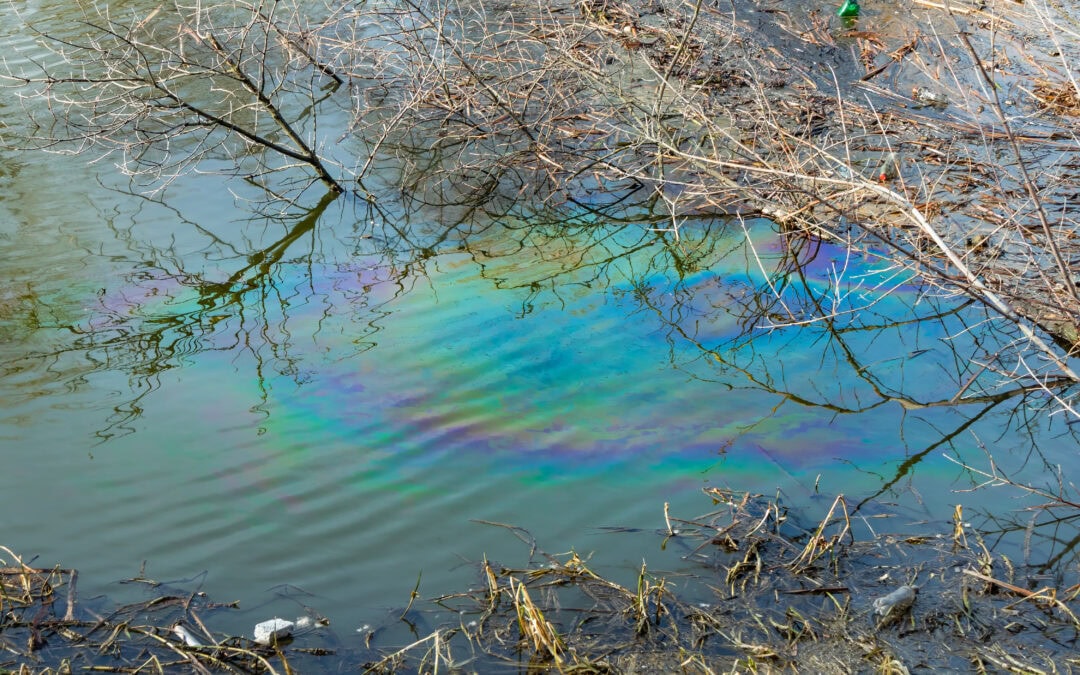With Louisiana’s long history of oil and gas production and refining, there have been countless instances of harmful chemicals contaminating the state’s groundwater. One of the more common substances found is benzene.
A colorless or light yellow liquid at room temperature, benzene can often be detected by its sweet smell or as a film that floats on top of water. It’s commonly found in naturally occurring sources like forest fires and volcanoes, as well as crude oil and gasoline. Industrial manufacturers also use this chemical to make other materials like plastics and synthetic fibers. Despite its uses, benzene is a known carcinogen, and its contamination is a matter of serious public health concern.
What is Benzene Contamination?
Benzene contamination refers to the presence of benzene in the environment, especially in groundwater, beyond the acceptable levels. This contamination can pose significant health risks to humans, as well as animals and plant life in affected areas.
Common Causes of Benzene Contamination
Benzene can seep into groundwater through various means, primarily from oil spills, leaking underground storage tanks, or as a byproduct of industrial processes.
In Louisiana, historic oil and gas operations have contributed significantly to benzene contamination. Oil spills, for example, can cause benzene to seep into the soil and eventually into groundwater supplies.
There are also instances of contamination from underground storage tanks or pipelines that hold benzene or benzene-containing products. Leaks from these systems can contaminate surrounding soil and groundwater, affecting both the environment and public health.
Impacts of Benzene Contamination
Long-term exposure to benzene can lead to serious health issues, including anemia, immune system problems, and an increased risk of cancer. Benzene contamination can severely impact the local ecosystem, affecting wildlife and plant life. Efforts to mitigate and clean up benzene contamination are crucial in protecting both human health and the environment.
Risks and Long-term Effects of Benzene Contamination for Landowners
Landowners are particularly at risk from benzene contamination, especially if their property lies in an area known for oil and gas operations. This contamination can affect not only the value of the land but also the lifestyle of those inhabiting it.
When benzene infiltrates groundwater, it impacts sources of drinking water and irrigation for crops. This contamination may significantly affect agricultural activities and can pose a serious health risk to residents. These residents’ lifestyles can be severely affected, with activities such as gardening, farming, and even outdoor play becoming hazardous.
Benzene contamination can also significantly impact a property’s value. The presence of this harmful compound can make the property undesirable to potential buyers, leading to reduced demand and lower property prices.
Legacy Litigation: A Way Forward for Affected Landowners
Legacy litigation is a remedy that landowners in Louisiana may consider when their property has been damaged by oil and gas operations, including benzene contamination. It provides a way for affected landowners to seek compensation for damage caused to their property and their health due to the contamination.
What Is Legacy Litigation?
Legacy litigation refers to lawsuits filed by landowners against oil and gas companies for environmental damage caused by their historic oil and gas operations. This damage often includes contamination of land and groundwater. Legacy litigation is so named because it addresses the longstanding impacts, or “legacy,” of oil and gas development on the environment and public health.
Legal Options for Landowners Impacted by Benzene Contamination
Landowners impacted by benzene contamination have several legal options. A foremost step is to engage a skilled and experienced law firm to initiate an investigation into potential claims against the responsible parties, typically the oil or gas company whose operations led to the contamination. This could lead to a lawsuit and potentially compensation for property damage, the cost of cleanup, medical expenses related to the exposure, and potentially other damages. Legal advice should be sought to explore the best course of action based on the specifics of the contamination and the resulting impact.
Role of a Legacy Litigation Attorney in Benzene Contamination Cases
A Legacy litigation attorney plays a critical role in these cases. They provide legal advice, represent landowners in court, and work to secure compensation for damages. This includes preparing documentation, gathering evidence, hiring environmental experts, and navigating the complexities of environmental law. These attorneys work to hold accountable those who have caused harm and to obtain the justice and compensation that affected landowners deserve.
Next Steps for Landowners Dealing with Benzene Contamination
When dealing with the complexities of benzene contamination and legacy litigation, it’s essential to have experienced and knowledgeable representation. At Talbot, Carmouche & Marcello, we have decades of experience in environmental law and legacy litigation, with over $3 billion in verdicts and settlements won for our clients.
Our firm has a deep-rooted commitment to the environment and communities of Louisiana. If you or someone you know is dealing with benzene contamination, schedule a free consultation with our team to review your case and potential next steps.

